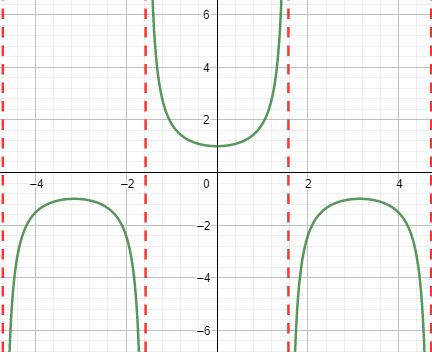
Different types of traders are welcome to trade on the financial marketplaces. You can choose the style that suits your needs and preferences. There are some common traits that distinguish different trading styles. The best strategy can help you increase your odds of making stable profits.
Day trader is someone who works during the day and executes a few trades. Day traders focus on taking quick and low-risk decisions. This may mean closing their positions before the end of the day. This is for people who wish to gain knowledge about the market and long term trends, but don’t have the time or ability to dig into the details of a company’s assets or companies.
You can still make money on the markets even if you don't have time or patience for a long-term strategy. Many traders use the arbitrage trading style to gain profits by purchasing and selling the same security in multiple markets. Arbitrage brokers are often experts in a market and can make money on price errors or imbalances.

Scalping is another trading style that's popular among day traders. Scalping is characterized by buying and selling a stock in a very short period of time, often within seconds or minutes. It is very aggressive and requires discipline and focus. Scalper should be willing to trade at higher leverage and in shorter time frames to achieve success.
Desk traders are generally less aggressive than day and scalp traders. They focus on timely decisions and financial data, as well as stock price fluctuations. They might specialize in options, foreign exchange, bonds or other markets. Because desk traders impact investment behavior, it's important to consider their strategies before you invest in the market.
Swing traders work in a similar way to desk traders but are more interested in long-term trends. This type of trading is suitable for investors who are active and don't have a lot of free time to devote to trading. Swing traders tend to have smaller positions, use less leverage and are more focused.
Fundamental traders are more concerned about the company's value. Fundamental analysis may provide greater profits per trade but also leaves the trader vulnerable to losing his investment if the value of the company drops. As a result, fundamental traders have to do more research and buy and sell at a slower rate than a day trader.

Trading is often divided into three groups according to the time they execute their trades. These are swing traders, day trader, and fundamental traders. When choosing a trading strategy, you should also consider your goals and risk tolerance. Each trading style will require a different level or financial knowledge.
Day traders (also known as fundamental traders) and scalpers (also called scalpers) are the most prevalent types of traders. In general, the more aggressive a trader will be, the more trades that he or she will perform.
FAQ
What is security on the stock market?
Security can be described as an asset that generates income. Most security comes in the form of shares in companies.
One company might issue different types, such as bonds, preferred shares, and common stocks.
The earnings per share (EPS), and the dividends paid by the company determine the value of a share.
You own a part of the company when you purchase a share. This gives you a claim on future profits. If the company pays a dividend, you receive money from the company.
Your shares can be sold at any time.
What is a mutual fund?
Mutual funds are pools or money that is invested in securities. They allow diversification to ensure that all types are represented in the pool. This helps reduce risk.
Professional managers oversee the investment decisions of mutual funds. Some funds also allow investors to manage their own portfolios.
Because they are less complicated and more risky, mutual funds are preferred to individual stocks.
Who can trade on the stock market?
Everyone. All people are not equal in this universe. Some people have better skills or knowledge than others. They should be rewarded.
Other factors also play a role in whether or not someone is successful at trading stocks. If you don’t have the ability to read financial reports, it will be difficult to make decisions.
You need to know how to read these reports. Each number must be understood. You must also be able to correctly interpret the numbers.
You will be able spot trends and patterns within the data. This will allow you to decide when to sell or buy shares.
This could lead to you becoming wealthy if you're fortunate enough.
How does the stock markets work?
Shares of stock are a way to acquire ownership rights. A shareholder has certain rights. He/she has the right to vote on major resolutions and policies. The company can be sued for damages. He/she can also sue the firm for breach of contract.
A company cannot issue shares that are greater than its total assets minus its liabilities. It is known as capital adequacy.
A company with a high ratio of capital adequacy is considered safe. Companies with low capital adequacy ratios are considered risky investments.
How does Inflation affect the Stock Market?
Inflation is a factor that affects the stock market. Investors need to pay less annually for goods and services. As prices rise, stocks fall. This is why it's important to buy shares at a discount.
How can someone lose money in stock markets?
Stock market is not a place to make money buying high and selling low. It's a place where you lose money by buying high and selling low.
The stock market is for those who are willing to take chances. They will buy stocks at too low prices and then sell them when they feel they are too high.
They want to profit from the market's ups and downs. They might lose everything if they don’t pay attention.
Can bonds be traded
Yes, they do! As shares, bonds can also be traded on exchanges. They have been doing so for many decades.
The main difference between them is that you cannot buy a bond directly from an issuer. They must be purchased through a broker.
This makes it easier to purchase bonds as there are fewer intermediaries. This means that you will have to find someone who is willing to buy your bond.
There are many different types of bonds. Different bonds pay different interest rates.
Some pay quarterly, while others pay interest each year. These differences make it easy for bonds to be compared.
Bonds are great for investing. You would get 0.75% interest annually if you invested PS10,000 in savings. This amount would yield 12.5% annually if it were invested in a 10-year bond.
You could get a higher return if you invested all these investments in a portfolio.
Statistics
- Our focus on Main Street investors reflects the fact that American households own $38 trillion worth of equities, more than 59 percent of the U.S. equity market either directly or indirectly through mutual funds, retirement accounts, and other investments. (sec.gov)
- Ratchet down that 10% if you don't yet have a healthy emergency fund and 10% to 15% of your income funneled into a retirement savings account. (nerdwallet.com)
- For instance, an individual or entity that owns 100,000 shares of a company with one million outstanding shares would have a 10% ownership stake. (investopedia.com)
- "If all of your money's in one stock, you could potentially lose 50% of it overnight," Moore says. (nerdwallet.com)
External Links
How To
How can I invest into bonds?
You need to buy an investment fund called a bond. Although the interest rates are very low, they will pay you back in regular installments. These interest rates are low, but you can make money with them over time.
There are many options for investing in bonds.
-
Directly purchasing individual bonds
-
Buy shares from a bond-fund fund
-
Investing through an investment bank or broker
-
Investing through financial institutions
-
Investing through a pension plan.
-
Invest directly through a broker.
-
Investing in a mutual-fund.
-
Investing in unit trusts
-
Investing through a life insurance policy.
-
Investing in a private capital fund
-
Investing via an index-linked fund
-
Investing through a hedge fund.